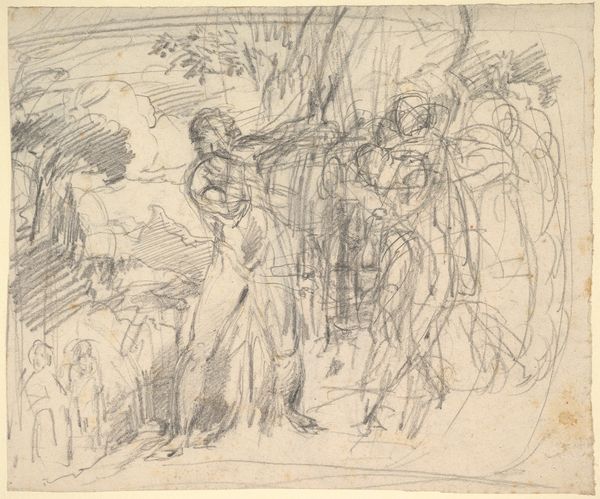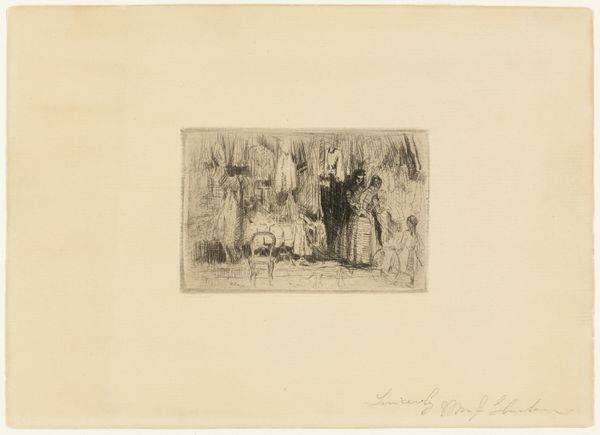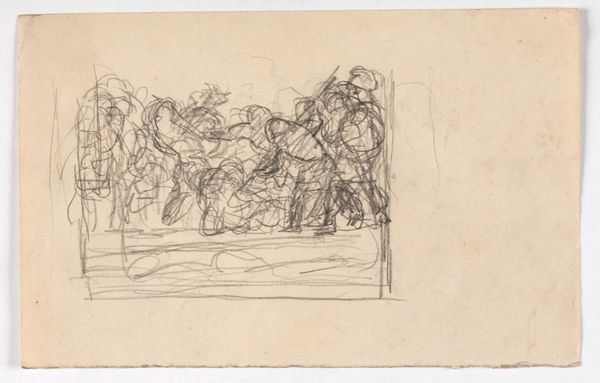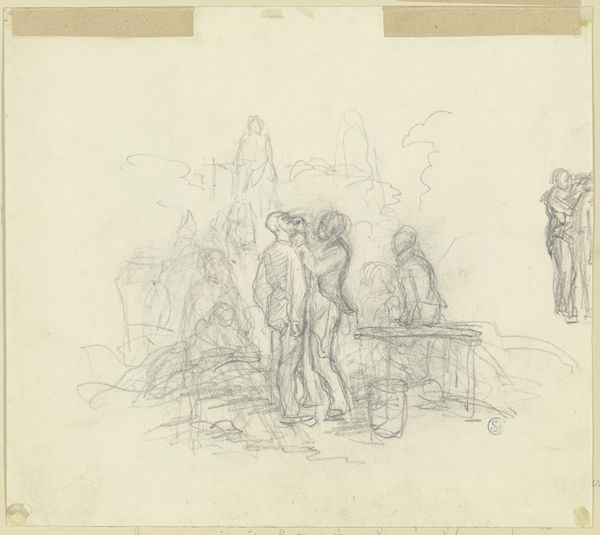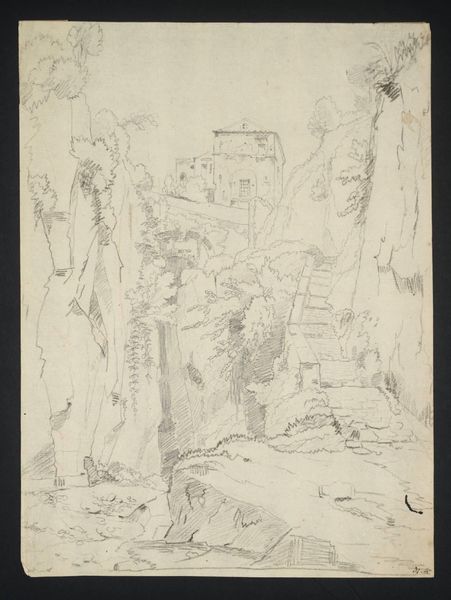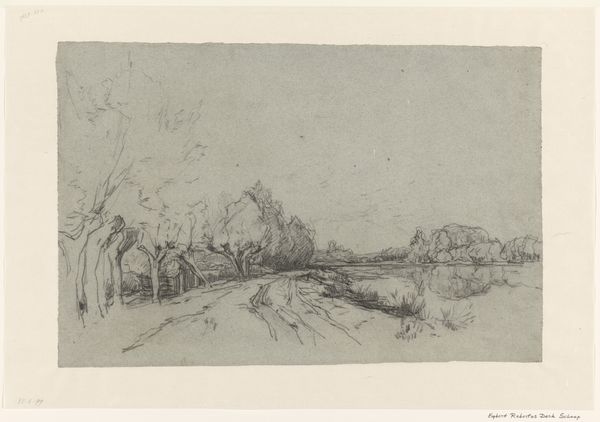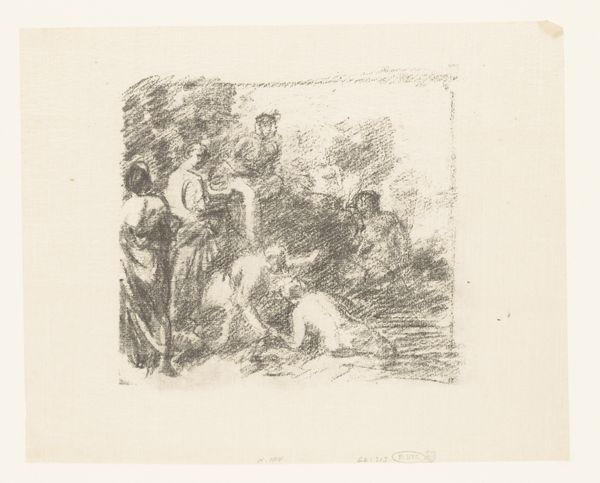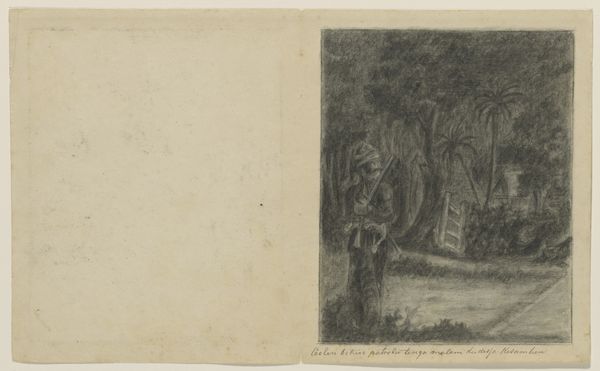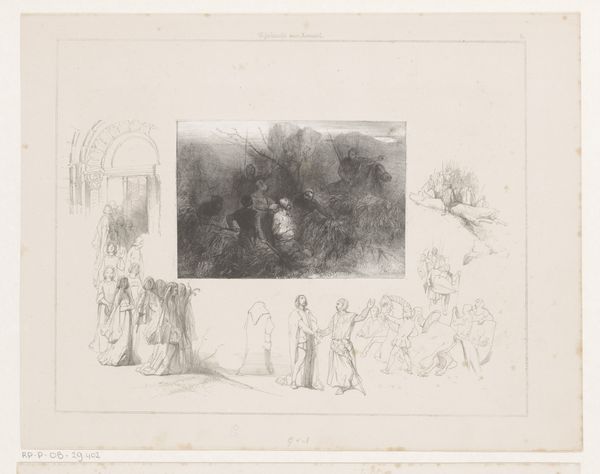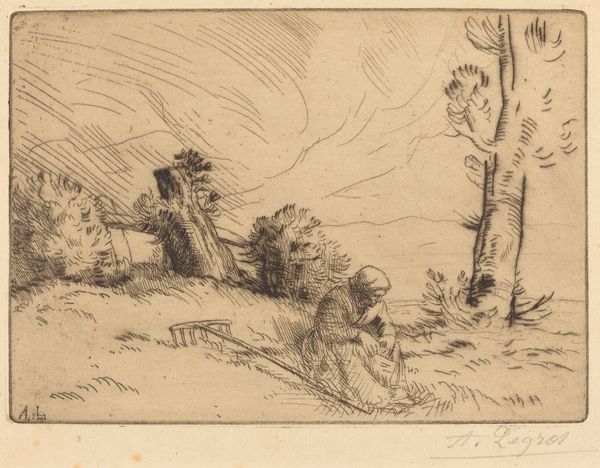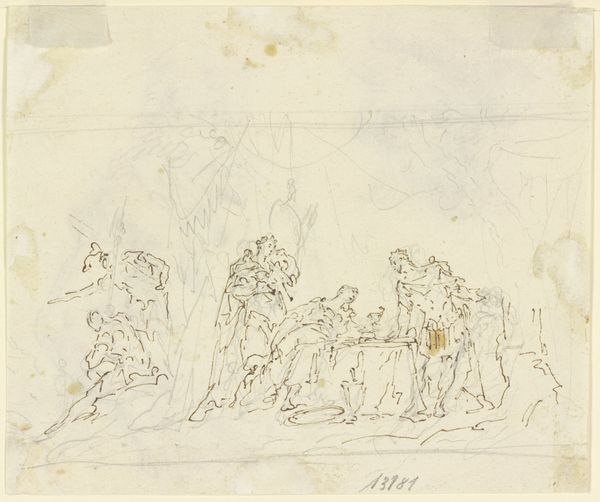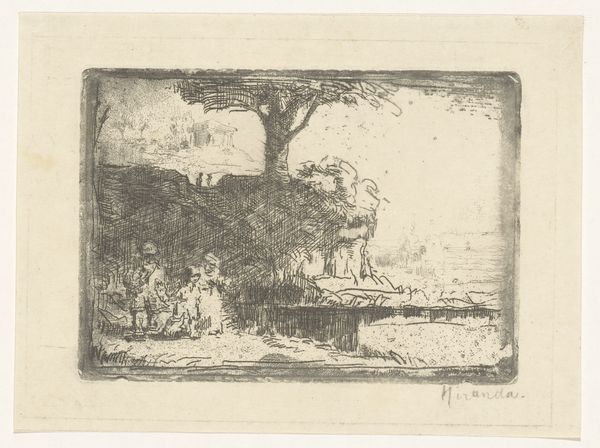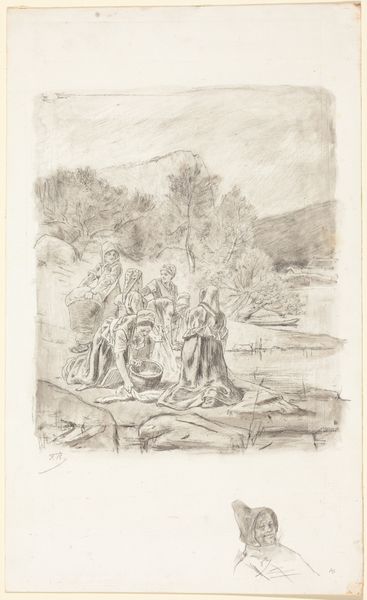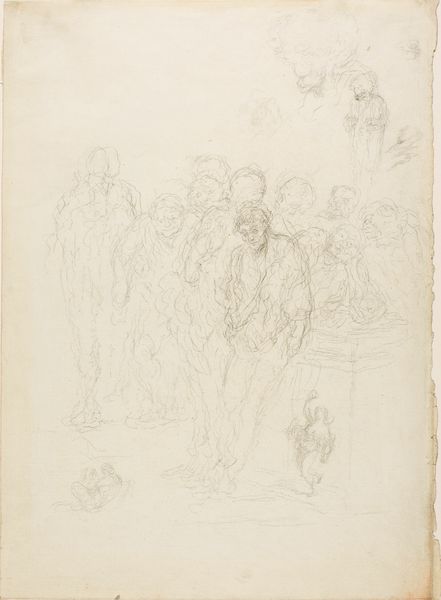
Copyright: Public Domain
Max Klinger made this etching, entitled 'First Draft for the Crucifixion of Christ,' sometime in the late 19th or early 20th century in Germany. Klinger was part of the Symbolist movement, which favored subjective and imaginative approaches to art. The crucifixion was a popular subject in European art for centuries, but Klinger's unfinished and somewhat ambiguous depiction reflects the Symbolist interest in conveying emotion and ideas rather than literal representation. The image shows Christ on the cross, surrounded by a crowd of onlookers. But the sketch-like quality leaves much open to interpretation. Was Klinger commenting on the role of religion in a rapidly modernizing society? Was he critiquing the institutions of art that had long upheld traditional religious imagery? Historians interested in the public role of art, the politics of imagery, and the social conditions that shape artistic production might consult Klinger's diaries, letters, and other writings, as well as the critical reception of his work in its own time. These sources can provide insights into the artist's intentions and the cultural context in which the work was created.
Comments
No comments
Be the first to comment and join the conversation on the ultimate creative platform.
